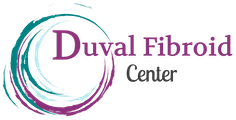To date, one of the most common symptoms of uterine fibroids is excessively heavy menstrual bleeding. Causing pain, discomfort, and all-around inconvenience in a woman’s life, managing this symptom may often grow more challenging as time progresses and her uterine fibroids grow larger.
But bleeding isn’t all a woman is likely to face. And as pelvic pain and pressure worsen alongside other symptoms, it becomes increasingly urgent to find treatment options and sources of relief.
Historically, many women have turned to surgical options like hysterectomy in an effort to finally put an end to their symptoms. But what if there were other options?
OPTION ONE: Medication
On Friday, May 29, the U.S. Food and Drug Administration officially approved ORIAHNN, the first-ever oral medication of its kind designed to help treat the heavy menstrual bleeding — also known as menorrhagia — in premenopausal women living with uterine fibroids.
Specifically, ORIAHNN is a pill comprised of an estrogen, progestin, and elagolix combination aimed at reducing a woman’s experience of symptomatic pain and bleeding. That being said, the use of medication to alleviate a woman’s experience of uterine fibroid symptoms is not new, though it is also not as frequently discussed.
“Medical management of uterine fibroids may provide symptomatic relief of the uterine fibroid-related symptoms along with the opportunity to maintain fertility,” studies have confirmed. “The choice of treatment depends on the patient’s personal treatment goals, as well as efficacy and need for repeated interventions.”
Of course, medications do not eliminate or provide a longterm solution for uterine fibroids — they only temporarily and immediately help women to manage their day-to-day discomfort.
OPTION TWO: Uterine Fibroid Embolization
If a woman is seeking an alternative to surgery but does not want to subject her body to the potential side-effects of medication, uterine fibroid embolization (UFE) provides an ideal solution.
By injecting small particles into the arterial system, UFE effectively blocks blood flow from reaching the fibroids themselves, thereby withholding nutrition altogether and causing the fibroids to shrink. As they become reduced in size, one also experiences a reduction — if not complete elimination — of their physical symptoms.
UFE is a minimally-invasive treatment option that requires no surgical incisions or general anesthesia and provides excellent results. With a patient satisfaction rate of over 90%, UFE will shrink your fibroids and restore your physical comfort — providing the longterm relief that is otherwise unavailable through medication.
Additionally, UFE features similar benefits to medication in that it will not impact your ability to become pregnant or complete a successful pregnancy.
What Comes Next?
If you’re ready to find out more about UFE or if you have further questions about medications as a treatment option, it’s time to reach out to Duval Fibroid Center.
Duval Fibroid Center is all about improving the level of information and healthcare provided to women living with uterine fibroids, so call us today at 904-423-6017 to schedule your appointment!

